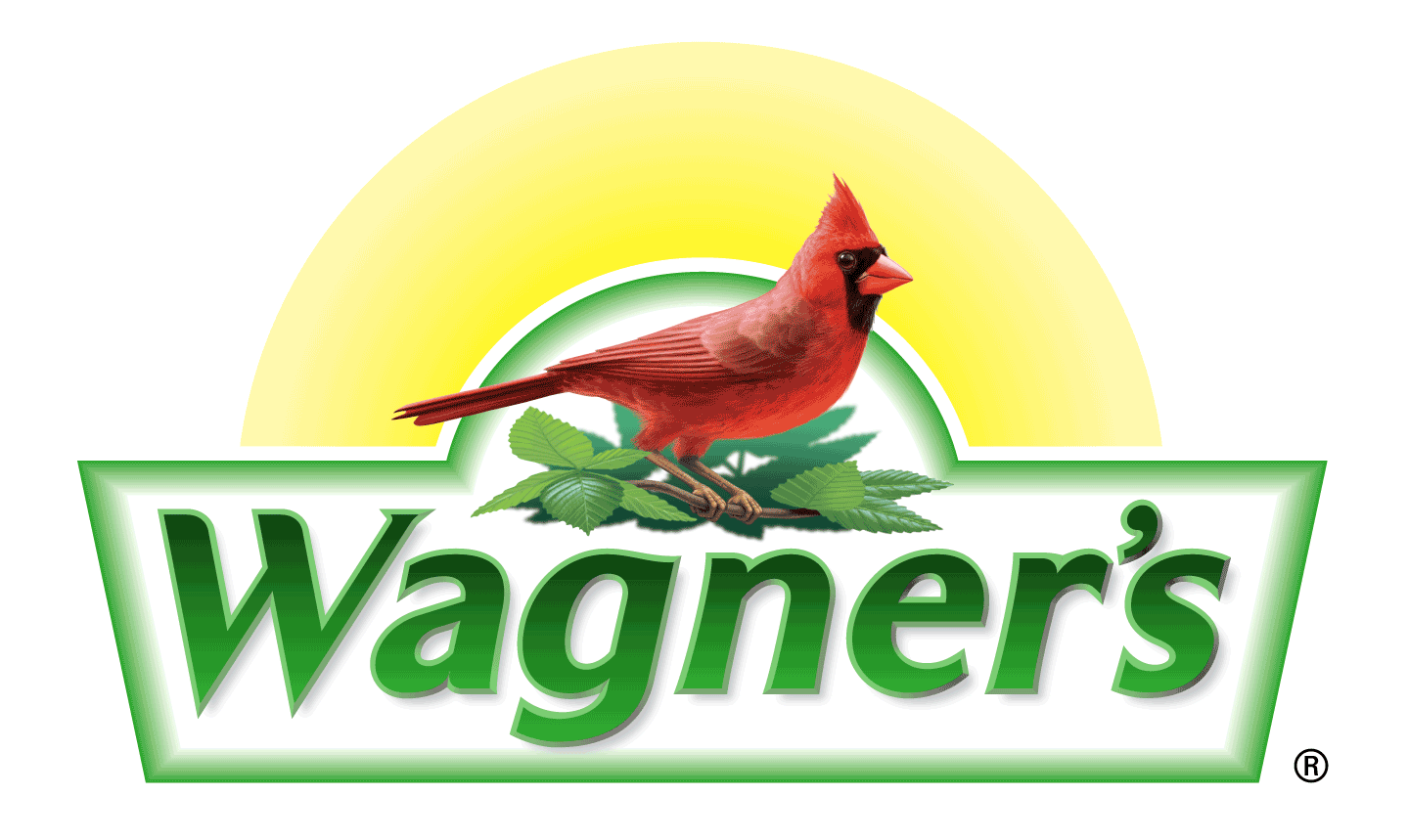FREQUENTLY ASKED QUESTIONS
Here are the questions Wagner's receives most often from its customers:
Where should I locate my feeder to attract the most birds?
Make sure that your feeder is close to natural shelter such as trees and shrubs to provide protection for your birds, but be careful not to make it too convenient for squirrels. Also, place it in a location so that you can enjoy watching the activities of your feathered friends.
Should I feed the birds year-round?
Yes, birds need food year-round, so it is best to keep bird feeders full all year or else the birds will leave. Birds have a high metabolism and need to continually eat. Birds nest from late winter through late summer and during these months there is not an abundance of natural foods, so they need additional food for breeding and raising their young. From early fall through the winter, natural food sources become harder to find so it is important to keep feeders full with bird seed during this time. You can enjoy your birds 12 months of the year.
What is the best bird food?
To attract the greatest variety of birds, feed the birds the seeds they like to eat. Oil Sunflower Seed is one of the best seeds to have in a wild bird food mix. It is popular with a large number of species and is easy to feed in a variety of feeder styles. Wagner's blends provide a wide selection of seed choices (including ones which contain Oil Sunflower) that will attract the largest variety of birds to the backyard feeder. Wagner's has the mixes that will attract the species you want and will fit any budget.
How can I attract specific birds and not attract others (e.g. starlings, grackles and cowbirds)?
Make sure that you have the right bird food to attract specific birds. Sunflower is a great seed that many species love. Also specialty blends, such as Wagner's Cardinal Blend or Finches Supreme, will attract these specific birds. Birdseed with less milo and corn won't attract as many cowbirds, grackles and starlings if you would rather not see these birds.
How do I stop squirrels from eating all of my birdseed?
Squirrels are a common problem at bird feeders. There are now a number of feeder styles designed to prevent squirrels from reaching the seed. For example, some use a weighted system that closes the feeder port when the weight of a squirrel is sensed. Squirrel baffles are also available to place above or below your feeder (depending on how your feeder is mounted) to prevent the squirrels from reaching your feeder. Additionally, there are two seeds that squirrels do not like -- safflower and nyjer seed. An optional method is to supply the squirrels with their own supply of food away from the bird feeder area. Cracked corn works nicely.
Where and how should I store my bird seed after I bring it home?
The best place to store your bird seed is elevated on a shelf in a cool, dry location in your garage, basement or storage shed. Whether you keep your bird seed in the original bag or in a storage container, you should make sure that it is closed or sealed tightly. It is also important that the storage location has good air circulation and is away from direct sunlight or heat source. You should avoid storing your bird seed on a cement floor, since moisture from the floor can be transferred to the seed. Keeping your seed dry will help it last longer.
Should I clean my feeder and how often should I do it?
Moldy or decomposing seeds are not healthy for birds to eat. You should wash and disinfect your feeder at least once a month and more frequently during wet weather. First wash the feeder in hot, soapy water and rinse thoroughly. To disinfect the feeder, immerse it for a couple of minutes in a solution of 1 part household bleach to 9 parts water. Rinse again completely with clean water and dry before refilling. You should thoroughly wash your hands after you have finished cleaning your feeder.
What should I do if I find a baby bird?
The best choice is to return it to its nest. If it has almost fledged, place it back on a branch in a nearby tree or shrub.
Please feel free to contact Wagner's with any other questions you may have.
Thank you for your interest in Wagner's.
'Your Backyard Birds Deserve The Best',
Your Friends at WAGNER'S
